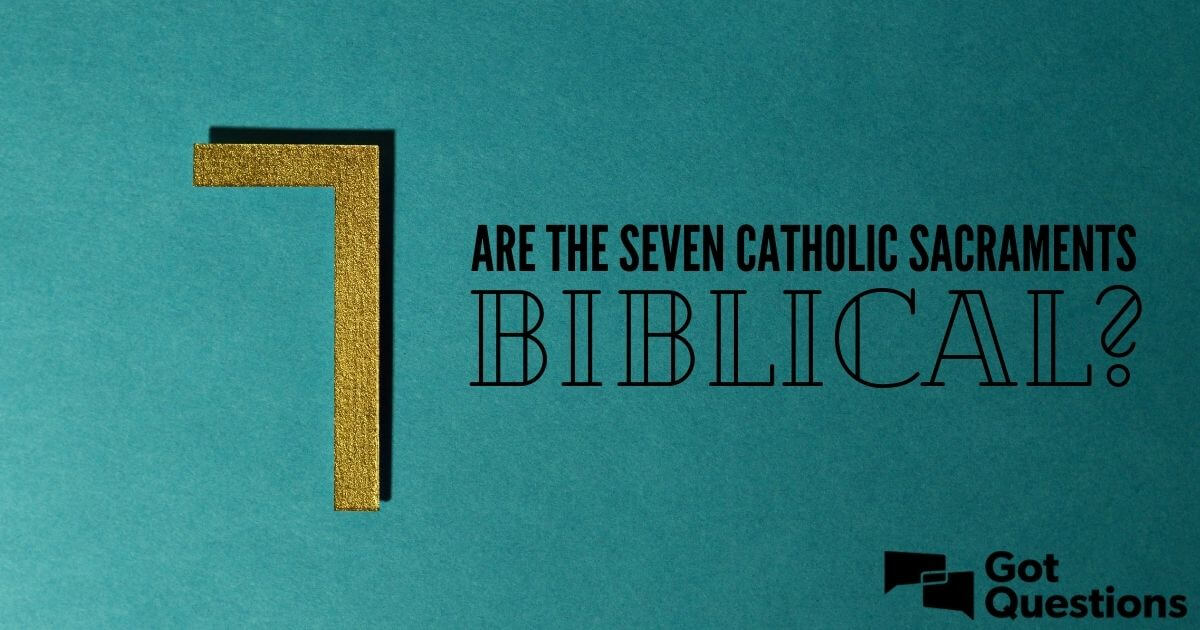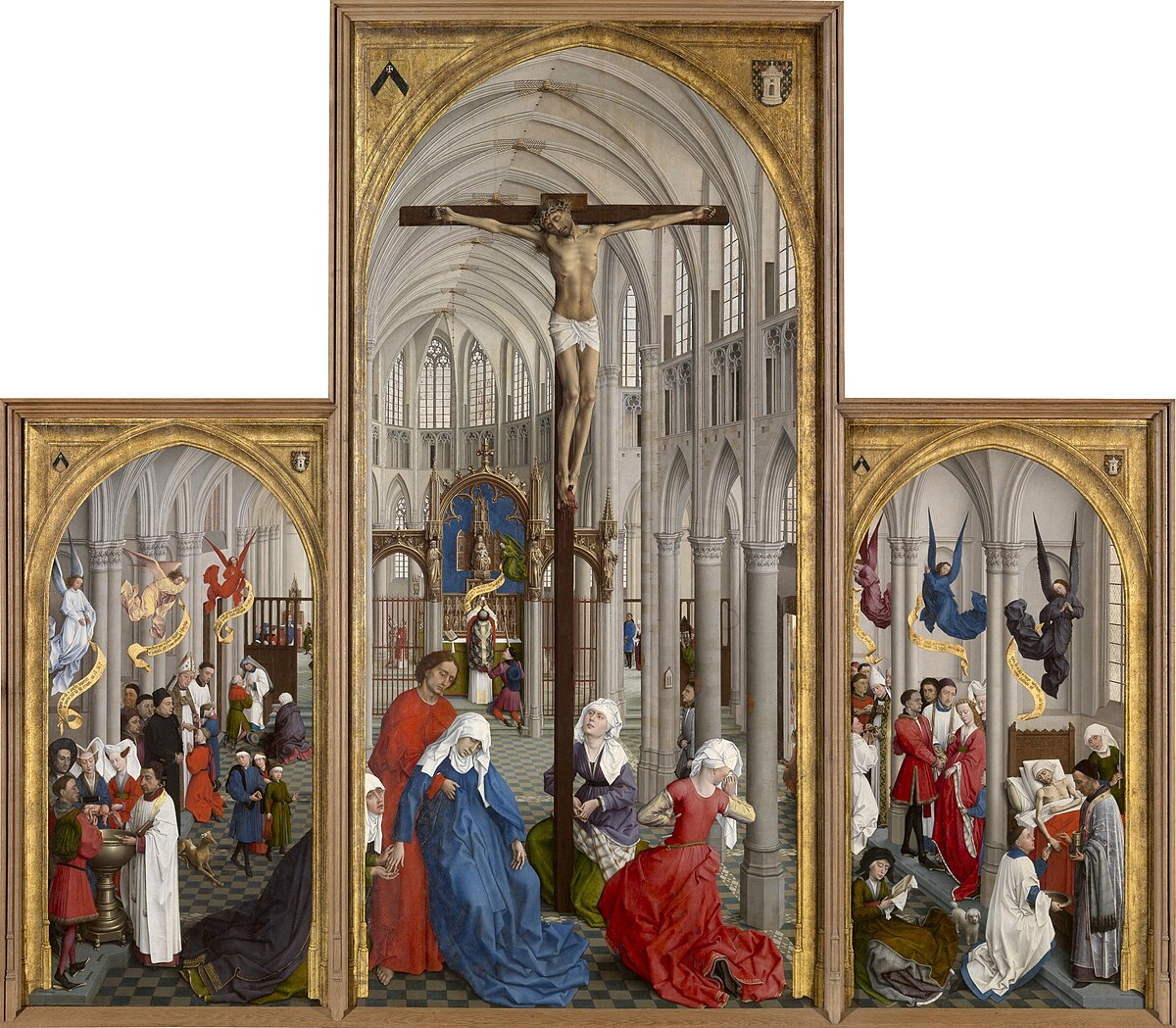ninja007
Gold Member
Sacraments are Heresy
By David J. Stewart
Mark 7:6-7, “He answered and said unto them, Well hath Esaias prophesied of you hypocrites, as it is written, This people honoureth me with their lips, but their heart is far from me. Howbeit in vain do they worship me, teaching for doctrines the commandments of men.”
Sacraments are NOT taught in the Bible. The Catholic Church is infamous for their unscriptural Seven Sacraments, which they mandate for salvation in the Catholic faith. If you don't perform these Sacrament in the Catholic religion, then you cannot go to Heaven according to Catholic heresies.
Here is a list of the unbiblical Catholic Seven Sacraments, with hyperlinks to a Catholic website explaining what they mean to a Catholic . . .
The Word of God DOESN'T teach anything about performing Sacraments in order to be saved. These are the evil manmade traditions which Jesus condemned in Mark 7:6-13. Jesus said in Mark 7:9 that the religious Jews knowingly rejected God's Commandments in exchange for keeping their OWN traditions. The Word of God condemns manmade traditions.
Protestant churches such as the Lutherans and Presbyterians only have two Sacraments; namely, Holy Communion and Water Baptism. Neither the terms “sacrament” nor “holy communion” are found anywhere in the Bible.
Water Baptism and the Lord's Supper were only established as ordinances in the Bible.
Water Baptism is one's public profession of faith in the Lord. Water Baptism is NOT a requirement for salvation (1st Corinthians 1:17). We are saved simply by faith in Jesus as the Christ, the Son of God. John 20:31 plainly teaches, “But these are written, that ye might believe that Jesus is the Christ, the Son of God; and that believing ye might have life through his name.” The moment we place our faith in Jesus Christ, the Son of God, we are automatically baptized with the Holy Ghost, Who comes into our body to live (Matthew 3:11; Romans 8:9). This has nothing to do with Water Baptism, which is an act of obedience only allowed for believers (Acts 8:36-37).
The Lord's Supper was established by the Lord only to do in REMEMBRANCE of His shed blood and broken body given for our redemption (Luke 22:19). Jesus paid our sin debt. The Lord's Supper is not a magical superstitious ritual. Martin Luther in his catechism writings mandated keeping the Holy Communion to get to Heaven. The Lutheran Church is one of the biggest deceptions in the world. Under the guise of exiting the Catholic Church, Martin Luther simply begat a new religion patterned after the whore of Catholicism.
Lutherans worship Mary, which is the demonic practice of idolatry. The Lutheran Church is of the Devil. Most Lutherans are in denial, claiming to be be saved by faith alone; yet, Martin Luther plainly taught that no one could go to heaven without being Water baptized. In fact, Martin Luther was so far out in left field doctrinally that he taught salvation was possible through Water Baptism, even without having any faith in Jesus Christ. Tragically, many woefully ignorant pastors and Christians today praise Martin Luther. Mr. Luther was a heretic until the day he died.
The bottom line is that Sacraments are NOT taught in the Bible. The term isn't even found in the Scriptures, nor the concept of any divine grace being bestowed upon the participants of Water Baptism or the Lord's Supper. Catholics teach the heretical doctrine of TRANSUBSTANTIATION (i.e., bread and wine literally turn into the body and blood of Jesus to give spiritual life). That is a form of spiritual cannibalism. So do Catholics also digest and eliminate Jesus in their bodily wastes? What a blasphemous and disrespectful teaching by Catholics! It is utter nonsense.
Lutherans teach a similar doctrine called CONSUBSTANTIATION (i.e., the bread and wine do not literally become Jesus, but they do produce spiritual life to the participant). Again, such a notion is NOT taught anywhere in the Scriptures.
The term “Protestant” is NOT found in the Bible either. Being a Protestant DOESN'T make a person a Christian. It just means that Protestants object to the methods and hierarchical authority of the Catholic Church. Luther's 95-Thesis did not condemn Catholicism for it's hellish heresies; but rather, for disagreements with the way the Church was run. Luther remained in the Catholic Church for another 2-years after he allegedly found the Lord. Luther came out of the Catholic religion; but the Catholic religion never came out of Martin Luther!
Jesus commanded in John 5:39 for all believers to SEARCH THE SCRIPTURES!
This eliminates the bogus teachings of Protestantism, Sacraments, Infant Baptism and Holy Communion. Phooey on the Westminster Confession (which is the official doctrinal statement of the Presbyterian Church). I am a born-again Christian. “Born-again” is a Biblical term mentioned in John 3:1-7 and 1st Peter 1:23. The term “Christian” is mentioned in Acts 11:26; 26:28; 1st Peter 4:16). Phooey on the Sacramental Salvation of the Catholic Church and the unbiblical Sacraments of apostate religions such as Lutherans and Presbyterians.
Certainly, there have been some former mighty men of God within the Presbyterian Church, such as Evangelist Billy Sunday and Pastor J. Vernon McGee; however, the majority of their churches today have departed from the Biblical faith and are practicing Infant Baptism and teach that Water Baptism bestows spiritual grace to the participant. They also follow the Westminster Confession which teaches that ministers have the power to forgive other's sins. That is no better than the hellish heresy within Catholicism that the Priest has the power to forgive sins. No they don't! Only God can forgive sin (Mark 2:7,10).
I encourage you, whoever you may be, to follow only THE BIBLE. Beware of the writings of men when those writings are elevated as an authority to live by. The Bible is the only Book and Final Authority in my life.
So many religious people today are divided between Jacob Arminius and John Calvin's teachings. Why follow either of those men? Those men have been dead for centuries! Both men taught heresies, mostly John Calvin. Just obey the Bible! If you have a King James Bible, then you have all you need! 2nd Timothy 3:16, “All Scripture is given by inspiration of God, and is profitable for doctrine, for reproof, for correction, for instruction in righteousness.”
We ought to learn a lesson from 1st Corinthians 1:11-12, “For it hath been declared unto me of you, my brethren, by them which are of the house of Chloe, that there are contentions among you. Now this I say, that every one of you saith, I am of Paul; and I of Apollos; and I of Cephas; and I of Christ.” The only one we should follow is Jesus Christ!
I hope that this article will be read by many people, who will decide in their heart to SEARCH THE SCRIPTURES and allow God's Word to be a LAMP unto their feet as Psalm 119:105 teaches. Leave alone the writings of men as being an authority in your life. The Bible is our Authority as Christians. God is all you need.
All the grace we will ever need is received the moment we trust Jesus, by faith, as Savior (Ephesians 2:8-9). The saving grace that is granted at the moment of genuine faith is the only saving grace God’s Word calls on us to receive. This grace is received by faith, not by observing rituals. So, while the seven sacraments are “good things to do,” when they are understood in a biblical context, the concept of the seven sacraments as “conferring sanctifying grace” is completely unbiblical.



